


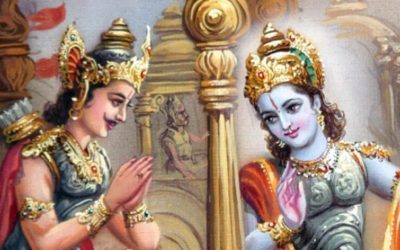
- « Previous
- 1
- 2
- 3
- Next »




No products in the cart.
You can help us help your child to succeed at Shiksha.
We will be strictly enforcing these guidelines and responsibilities and will greatly appreciate it if you follow them and encourage your children to follow them as well.
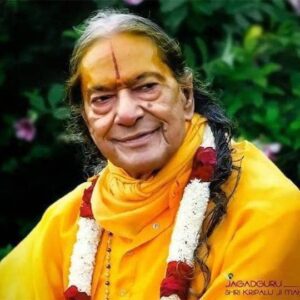
Radha Govind Dham receives its inspiration from Jagadguru Shree Kripalu Ji Maharaj, who is the 5th Original Jagadguru of our times and widely acknowledged as the foremost authority on Bhakti (the path of devotion to God) at the present time
Shree Maharaj Ji was born in a small village of Mangarh, near the holy city Prayag (Allahabad, India) in 1922. In order to benefit those souls desiring God’s love, Kripalu Ji Maharaj founded an Ashram in Mangarh in 1966. Over the years, the ashram has steadily expanded to accommodate thousands of devotees who come from all over the world. Today, Mangarh is a pilgrimage destination with an architectural wondrous Radha Krishna Temple – Bhakti Mandir, and Bhakti Bhavan a90,000 square foot auditorium that can accommodate over 10,000 devotees at one time.
At the young age of 35 years, the fame of Kripaluji Maharaj’s unparalleled scriptural knowledge spread across India and inspired Kashi Vidvat Parishat, an exclusive body of 500 most revered Vedic scholars, to invite him to Kashi to deliver a series of discourses. His discourses in fluent Vedic Sanskrit left all of the scholars speechless. With profound admiration, Kashi Vidvat Parishat unanimously proclaimed him as Jagadguruttam. After the 4 Jagadguru’s Jagadguru Shree Kripalu Ji Maharaj is the fifth original Jagadguru of India.
Through countless lectures, Jagadguru Kripalu Ji Maharaj has explained the most complex teachings of Hindu scriptures in a simple, practical manner that can be understood by people of all backgrounds. He emphasized roopdhyan (actively engaging the mind while meditating on the form of God) as the most important part of Bhakti -considering Bhakti without roopdhyan lifeless. He has also revealed a sea of devotional material including Prem Ras Siddhant, 1,008 original pads (devotional songs) and thousands of enchanting Radha Krishna bhajans and kirtans.
Jagadguru Shree Kripaluji Maharaj’s discourses are aired daily on US Television. His spiritual teaching clarifies the purpose of life, details the path of bhakti yoga, and outlines the essence of the Hindu religion.
 TV Asia
TV Asia
Monday – Friday
9:00 AM (EST)
Saturday – Sunday
10:00 AM (EST)
 Aastha:
Aastha:
Monday – Sunday
6:30 PM (EST)

Established in 1970 by Jagadguru Shri Kripalu Ji Maharaj
JKP Worldwide is a non-profit, charitable, educational and spiritual organization founded to provide a deeper understanding of authentic Hindu spirituality for the growing number of people seeking spiritual guidance and support
All three hospitals are equipped with modern technologies, where all medical treatments, hospital facilities and required medications are provided free of cost to each and every patient. In addition, free medical and health awareness camps are conducted regularly. JKP also provides financial aid, medicines, and emergency medical services as and when required. Learn
more about our hospitals
JKP runs a 100% free secular educational institution to enhance
literacy and provide quality education to the deprived. The institution has three levels – primary school, intermediate college and a graduate level college, where all students receive their education
completely free, along with free uniforms and other school related requirements. Learn more about JKP Education
JKP coordinates various social, philanthropic and humanitarian activities to provide relief to the poor through free distribution programs, including distribution of hand-driven tri-cycles, clothing, blankets, food, etc.
Learn more about our distribution programs
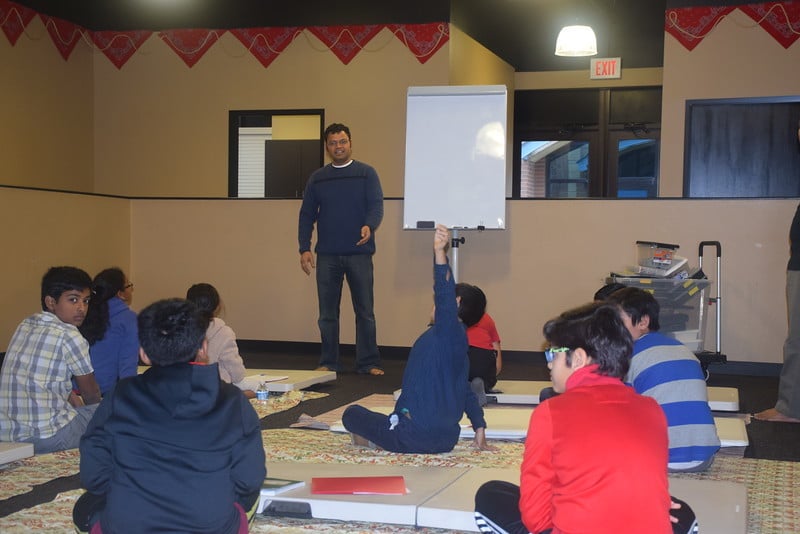
Shiksha aims to provide a nurturing environment for developing Cultural, Academic, Professional, and Leadership skills in youth. It is designed to foster in kids love for Indian Arts & Culture, promote a deep understanding about Hindu spirituality, and help children excel both in life and in school.

Meenakshi earned her B.E. Computer Science from Delhi College of Engineering. She has been working as a software developer for the last 18 years. She has two children and has been actively involved in their education. Meenakshi enjoys teaching and seeing t children blossom as they gain new knowledge.

A graduate from UTSW Medical Center in Clinical Dietetics, Mahima has been working in hospital industry for more than 15 years. Her experience with teaching kids started while teaching her own children. Soon she realized kids brains are like sponges, and exposing them to different areas early in life is very important. Her motto in life is, “Learning never stops.”
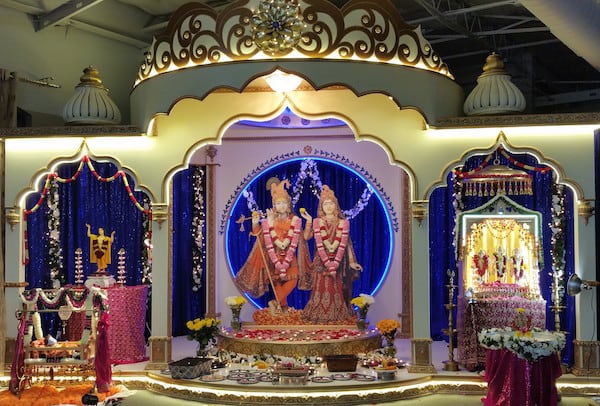
Radha Govind Dham has been established for the Hindu community of Dallas-Fort Worth, where children, adults and seniors can meet for devotional, educational programs, cultural celebrations and fun-filled family activities.
A center created for the community, by the community.
DEVOTION
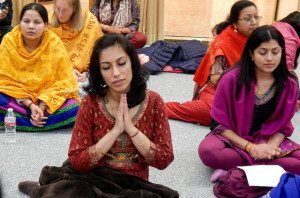 To inspire devotion to Radha Krishna by sharing the teachings of Sanatan Dharm Hindu scriptures, practicing the philosophy and practical aspects of Bhakti through Spiritual Discourses, Satsangs, Family Camps and Meditation programs
To inspire devotion to Radha Krishna by sharing the teachings of Sanatan Dharm Hindu scriptures, practicing the philosophy and practical aspects of Bhakti through Spiritual Discourses, Satsangs, Family Camps and Meditation programs
EDUCATION
 To provide youth, living in the western culture, a deep immersion into Indian tradition, culture and give them skills that can help children excel at school and in life
To provide youth, living in the western culture, a deep immersion into Indian tradition, culture and give them skills that can help children excel at school and in life
Shiksha – Enrichment School for Hindu Youth run by Radha Govind Dham volunteers achieves this aim successfully
COMMUNITY

To provide a place for cultural celebrations and community activities so as to bring the Hindu community together as one extended family – whether they are Hindu Youth, Adults or Seniors

Radha Madhav Dham is one of the largest Hindu temples and ashrams in the U.S. It was built to be a representation of the holy land of Braj in India where Radha Rani and Shree Krishna appeared 5,000 years ago.
Radha Madhav Dham has a core spiritual mission “To inspire devotion to Radha Krishna”
 To Teach The True Knowledge of Hindu Vedic Scriptures and to ensure authentic teachings of Hindu religion are available for future generations in a simplified, practical way that is combined with logical scientific explanations as to how we can make them relevant to modern living.
To Teach The True Knowledge of Hindu Vedic Scriptures and to ensure authentic teachings of Hindu religion are available for future generations in a simplified, practical way that is combined with logical scientific explanations as to how we can make them relevant to modern living.
 To Teach The Practical Form Of Devotion
To Teach The Practical Form Of Devotion
On the path to God, Knowledge is incomplete without practical experience. Bhakti Yog is the spiritual practice whereby a soul can attain the ultimate purpose of life, God realization.
 To Help Souls In Need through support of Humanitarian and Charitable Projects. This way we can not only improve the material welfare of society but elevate our own self through the act of giving and thereby accelerating our own spiritual progress.
To Help Souls In Need through support of Humanitarian and Charitable Projects. This way we can not only improve the material welfare of society but elevate our own self through the act of giving and thereby accelerating our own spiritual progress.
Error: Contact form not found.
Costume Entry Fee is $10.00 for online registration.
You will be re-directed to the payment screen after you finish submitting your registration form,
Please wait to make payment so you can be FULLY REGISTERED. Just filling the form without payment
counts as incomplete registration and may not guarantee your child a place in the costume contest
All Kids will win something for participating and getting into the spirit of Janmashtmi.
Best dressed kids in each age category as judged by our judges will win special prizes.
Yes. Shiksha is a non-profit educational organization and was created to provide cultural enrichment to the youth of DFW.
Shiksha offers many classes in the diverse areas of classical music, dance, drama, language, Hinduism, yoga, Vedic math, chess and academic enrichment classes under one roof.
Shiksha’s classes are held largely on Saturdays and Sundays at Radha Govind Dham premises. Some classes are also conducted on weeknights.
Classes for the Spring semester of 2020 will begin on Feb 3 (Monday) and go for 12 weeks until May 17. Online registration is available now.
Different classes at Shiksha have different age requirements. Please refer to Class descriptions for more detail. In general, Shiksha accepts students aged 4 to 18.
All Shiksha classes are led by leading professionals in their fields and have a fee associated with them.
Students are the focus of Shiksha. As parents, it is our responsibility to introduce our children to the customs and traditions we grew up with and value so much. We also want to make sure they learn properly and from qualified teachers.
In addition to enriching our children’s spiritual and cultural development through traditional classes in Hinduism, Language and Music, Shiksha teaches them unique skills they can use to excel among their peers in school by offering classes in Public Speaking Art and Robotics.
Being at Shiksha opens doors for Indian youth to explore the many treasures of Indian and Hindu culture. Classes are small so that the unique strengths of a child can be focused upon and brought out. Students will gain an educational ‘edge’.
First, almost all of our teachers here at Shiksha are parents themselves. Not only are they experts, or performing artists in their respective fields, they are also friendly, caring and trustworthy. Many of our teachers have won awards and recognition for their work. Parents can expect classes at Shiksha to be structured, conducted regularly and taught by passionate, dedicated and qualified teachers. The school year is divided into two semesters. Our teachers will follow a well-defined, comprehensive curriculum during these semesters. More importantly, your children will be learning and exploring themselves in a safe, nurturing environment with caring teachers.
Yes! There are many fulfilling activities for you to get involved in during class time including
Sure. Please send an email to Meenakshi Gupta and let us know your passion.